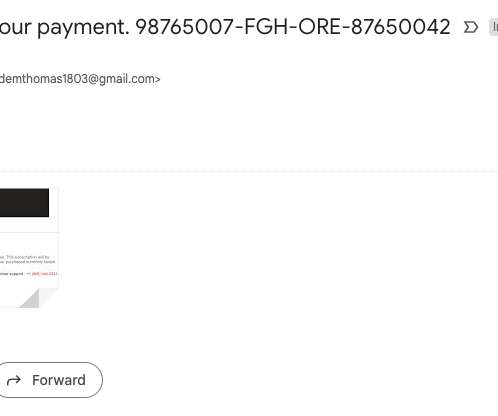Phish or Be Phished. That is the question!
Security Boulevard
SEPTEMBER 7, 2022
Of course, there is a PDF attachment showing my receipt of payment. ** Please do not open these files unless you want to test your antivirus and anti-malware software loaded on your device! Does this phishing attack constitute a possible identity theft? Spoiler alert — Hacking AL and ML is coming in an upcoming blog!












Let's personalize your content